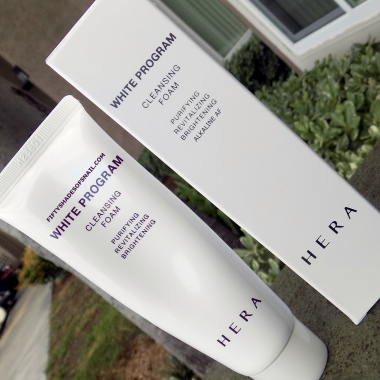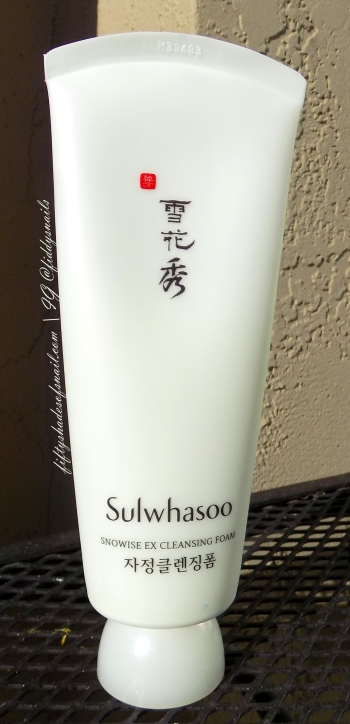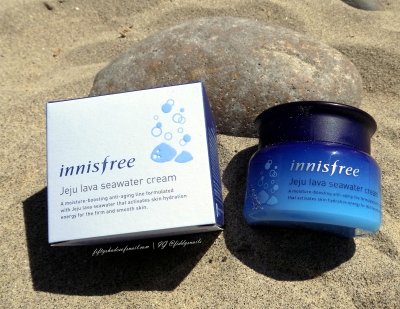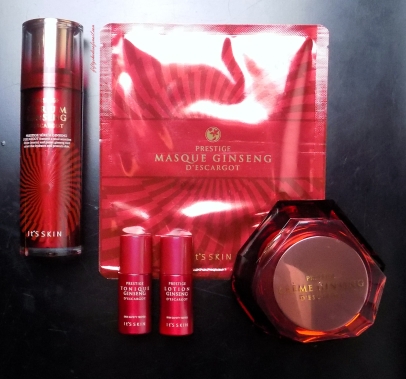There’s a predatory side to the beauty industry, a shadowy underbelly where cosmetics marketers reinforce societal pressures and exploit consumers’ personal insecurities to sell product. One way to deal with this ugly reality is to trust no one and side-eye everything…but I don’t have it in me to pickle myself in the salty brine of cynicism, and I don’t see the need. Marketing is marketing; formulation is formulation. The two departments impact each other, but shady marketing doesn’t always preclude good formulation. There are some truly amazing skincare products out there. Some even do what they claim to! But discovering those unicorns in the dark forest of lies requires us consumers to carefully manage our expectations.
We’ve talked before about the importance of ingredient awareness and how helpful keeping track of our skincare progress can be. Now let’s talk about defending our wallets and complexions from some of the worst offenders of inflated expectations.
Skincare marketing and the power of suggestion
Words are powerful. Words can plant ideas in our minds without ever coming out and making specific claims that could land a brand in legal trouble. When a line of products is named Regenerist, that suggests–without having to outright state!–anti-aging effects. Skincare with “clear” right in the name implies anti-acne effects.

The key products around which lines like these are built may indeed have the ingredients to back up the claims (Olay Regenerist is a legitimately impressive drugstore line, for example!). But that doesn’t mean everything with a particular name will deliver the expected effects. So the first lesson of expectation management is to look beyond the names of the lines products are packaged to fit into. In fact, once you get to a basic level of ingredient awareness, it’s helpful to ignore pretty much all of a product’s packaging and advertising copy. Those words are the work of the marketers, not the formulators, so they don’t mean much to our skin.
The only really useful part of a product’s name is the part that specifies what it actually is (cleanser, toner, serum, cream, etc.). Different products have different abilities, and no one product can do everything. For example, expecting a cleanser to deliver results like a serum is a shortcut to sadness.
What to expect from cleansers
Speaking of cleansers, one of my skincare marketing pet peeves is the cleanser marketed as serious skincare. Acne sufferers (often, adolescent acne sufferers) seem to be a common target for these products, especially in drugstore beauty aisles. There are “AHA/BHA” cleansers and “blackhead clearing” cleansers and “pore refining” cleansers and straight up “acne washes.” There are cleansers packaged for pretty much every possible complexion complaint a skincare shopper might have. My precious Sulwhasoo Snowise EX Cleansing Foam doesn’t come right out and promise whitening effects on the label, but I don’t think I’m crazy to infer whitening claims from the name Snowise.

Anyway. All these cleansers with the explicit and implicit skin-improving claims on the labels have one really important thing in common.
They wash off!
There are some problems that cleansers are perfectly suited to address, and they’re serious problems: makeup, dirt, germs, pollutants, and oils (whether produced by your face or applied to remove makeup) clogging your pores, dulling your skin, and potentially providing surfaces for free radicals to latch on to. Don’t underestimate the problems a dirty face can cause. But don’t overestimate the benefits of a clean face either. There are other problems that cleansers just won’t solve.
Acne (unless it’s caused solely by using a shitty cleanser, which is possible but kind of improbable), hyperpigmentation, and general skin aging are influenced by factors far beyond the help of the 20 or so seconds a cleanser might be on your face. It’s true that some cleansers contain film formers that can help your skin retain more active ingredients, but good luck figuring out which cleansers have those, whether they’re capable of leaving enough of their active ingredient behind to make a visible difference, and whether you really want a cleanser that leaves so much of itself behind in the first place. Cleansers are meant to cleanse and then rinse clean. Don’t expect your vacuum to repair your drywall, because that’s not going to end well.
Expect your cleansers to:
- Thoroughly cleanse your skin without leaving residue
- Cleanse your skin without making it feel dry, tight, thin, or irritated afterwards (some factors to consider are cleanser pH and the type of surfactants used)
What to expect from moisturizers
Moisturizers, like cleansers, have their purpose right there in their name. Moisturizers–whether they’re emulsions, lotions, creams, gels, gel creams, creamy gel cream lotions, or whatever wacky thing I’m fortunate enough to be sent–exist to moisturize. That is, they’re made to add and retain moisture to your skin.

It sounds pretty simple, but except for plain carrier oils (which are perfectly valid and often wonderful skincare options!), even simple moisturizers present big challenges for formulators. In the first place, many ingredients with skin benefits need to be present in fairly high concentrations to show effects, and due to the formulation limitations of moisturizers, there generally just isn’t enough room.
I swear I’m not talking out of my ass here! For this section, I consulted my amazing homegirl Chel of Holy Snails.

Chel explained that a “moisturizer” is simply a blend of humectants, emollients, and occlusives: the ingredients that add moisture and seal it into the skin. All moisturizers are emulsions, whether of water and oil, silicone and oil, silicone and water, or all three of that crap. It’s not as easy as stirring some shit together and calling it a cream, though. Probably it won’t even look like a cream if it’s approached like that.
Emulsions need emulsifiers, which determine the consistency of the finished product, and they need heat, and very strict balances of water and oil phase. All of these requirements add up to just not very much wiggle room to add in lots of extracts or other fun but not-strictly-necessary components. Generally not enough to make a substantial, long-term difference, unless the ingredient is something like retinol, which can indeed be effective even at very low single digit concentrations.
This doesn’t mean that moisturizers can’t do anything but moisturize, of course! There are ways for moisturizers to achieve more. In my experience, it depends on whether the main ingredients of the moisturizers can pull double duty. For example, skin-identical emollient moisturizing ingredients like ceramides, cholesterol, and other fatty acids, if present in the appropriate ratios, can moisturize in the short term and penetrate to strengthen the skin barrier over time as well. Extracts will be able to do more of whatever it is they do if they’re used completely in place of plain water. Many oils provide antioxidant benefits. And hydrolyzed collagen, which I used to snub but now actually kind of like, serves as both humectant and film former and can also create an insta-firming effect that people Of My Certain Age may appreciate. But if you’re looking for those types of benefits first and moisturization second, it makes more sense to seek out a serum or ampoule that allows for a higher concentration of active ingredients.
Expect your moisturizers to:
- Add some hydration to your skin (this effect will be uppermost in gel and gel-cream moisturizers)
- Seal moisture into your skin by forming a protective film at the surface (most prominent in traditional lotions and creams)
What to expect from masks
It’s relatively easy to remember that cleansers need to cleanse and moisturizers need to moisturize, but what about masks, those spa night treats that some of us (ahem) have stockpiled and incorporated into our daily skincare routines? Masks are special. Masks are made to provide more intensive absorption of topical solutions or more intensive cleansing or exfoliating effects than everyday products. And masks are single-purpose. In other words, masks shouldn’t be subject to the same limitations as cleansers and moisturizers. We can therefore expect great things from our masks, right?
Ehhhhh…
It depends!

It’s true that masks of all types are made to be quite potent, able to do their one job and do it well, whether the masks are hydrating sheet masks with some extra brightening or calming or temporary firming effects, or clarifying clay masks that help pull stubborn gunk out of enlarged pores, or nourishing wash-off packs meant to pack skin full of moisture and reparative or protective goodstuff™.
It is also true, however, that no skincare product will have any lasting effect without rigorous, consistent use. Skin is constantly renewing itself, so improving its condition requires staying ahead of the natural regeneration cycle. But not all masks can be used all the time. Even I don’t have the extra time or energy to attempt a wash-off pack every day, and just about everyone’s skin would be ruined from overly frequent scrubbing or clay masking. About the only kind of mask that can realistically be done every day and that can, if carefully chosen for proven key ingredients, actually deliver long-term benefits beyond simple hydration, is the sheet mask. And even a daily premium-ingredient sheet mask is a big commitment that goes beyond what’s generally necessary in a thoughtfully curated skincare routine!
Expect your masks to:
- Provide an immediate but temporary visible improvement to skin condition
Which products can you expect to do great things?
Yay, we’re done with the negative portion of the post! I wouldn’t be a huge skincare fanatic if I didn’t believe that there are skincare products, even commercially available, over-the-counter ones, that can make real, lasting improvements to skin. It’s just that I don’t expect those improvements to come from the types of products I talked about above.
What’s left (besides toners, which…I swipe on and don’t really think about much) are essences, serums, and ampoules. Beauty brands often use the terms interchangeably, though I think of essences as the thinnest and least concentrated of the three and ampoules as the thickest and most potent. Slight differences in consistency aside, however, these three product types have a very important characteristic in common: since they don’t need to perform basic cleansing or moisturizing functions, their formulations can generally include larger amounts of the beneficial and active ingredients that can effectively target different skin issues.

Of course, not every essence or serum or ampoule will be perfect either. But when it comes to addressing specific skin issues besides cleanliness, moisture, and the desire for a quick pick-me-up, essence, serum, and ampoule products stand a much better chance of containing the things that can actually help, because they don’t have to first do other things well. Multitasking isn’t always ideal. In fact, in skincare, it almost never is.
I hope this post was helpful! I’ve seen a ton of disappointed posts and comments from beauty lovers like me who expected too much out of a product and were terribly let down, or who unfairly dismissed a product that did what it was supposed to but didn’t deliver any extras (that it was never qualified to provide in the first place). Many of these mishaps come from not knowing what to reasonably expect out of a product. With some basic standards in mind, it should be at least a little easier for you to assemble the skincare routine that truly works for you.
What are your expectations about different skincare products, and do you ever feel misled into expecting too much from a product?

I love this post, especially the bit about cleansers. I personally would add “smell pretty” to the list of things to expect from your cleansers, because that is the one reason I will shell out for an expensive cleanser (within reason) — if it provides some experiential benefit while using it. But right now, my cleansers are supremely boring, as are my moisturizers. My serums are where I decide to get interesting and look for all the fun ingredients. Right now I’m on a ginseng, green tea, licorice, and honey/propolis/royal jelly kick (sounds like a Republic of Tea blend).
LikeLiked by 1 person
That sounds delicious! O.O
LikeLike
http://www.republicoftea.com/honey-ginseng-green-tea/p/v00647/
LikeLiked by 1 person
I love this! I have a hard time explaining it to people that a cleanser with a super long fancy name won’t really make anything more than cleanse the skin well. The marketing game is especially strong with antiaging creams which are supposedly all toner, serum, essence, moisturizer, facial oil and sunscreen all at once. I still can’t convince my mom a super fancy cream with an SPF doesn’t automatically equal perfect sun protection all day long.
Why are your posts so addictive? T_T
LikeLike
SPOT ON! Thanks so much for articulating this…I try to manage my expectations for cleansers especially, but all skin care products in general to prevent the Buyer’s Remorse or the Impulsive Chucking Out/Giving Away of Perfectly Decent Things 😉 So important to remember that a product will only do what it’s designed to do, & that even the best ampoule in the world ain’t surgery! 🙂
LikeLike
Excellent points all around. And thanks for getting product category-specific; since my new year’s promise to myself is to try more masks (2016 is my Year of the Sheet Mask. hahaha), I’ve struggled with testing/reviewing them fairly and thoughtfully. They’re so lovely, and so fleeting. Such is life!
Hype is so disappointing for me–it’s kind of the reason why I didn’t care much for a lot of popular and otherwise decent movies… Haha, but that’s the cynic in me! Anyway, truly, YMMVYMMVYMMV in skincare. Sighhh. ~slithers out~
LikeLike
I was in The Face Shop the other day and my boyfriend was in there with me for the first time and he noticed that the shop was really yellowy lighting that made your faces actually seem sallow and dull looking. This thought was triggered when I said I couldn’t see a nail polish color correctly and had to shine it under a shelf light where it was white light instead of yellow. The store was set up to immediately have ladies to feel unattractive and think that something was wrong with their skin. To add salt to wounds, he also pointed out that the lighting at the cashier station was brighter to make the sales-girls seem like they had brighter skin and since they represent TFS, they must be doing something right with their skin to achieve that. MIND BLOWN. Boyfriend gets a cookie for that. Shopping may seem fun but it’s also like entering a world of your internal, personal insecurities that these companies, as you said, prey on. SMH.
LikeLiked by 3 people
Woah. That’s pretty off-putting. Thanks for sharing that!
LikeLiked by 1 person
This was an excellent reminder, Fiddy! One thing I took away from an episode of the Snailcast was that investing in products that are on our skin the longest is a good way to go. I’ve always leaned toward serums (even before falling in love with AB), but your post really reminded me to take a hard look at what’s in my routine and what I think it should be doing.
You’re always so insightful, and I’m reminded of my failed Su:m37 White Award Enzyme Powder wash foyer. Aside from getting a counterfeit product from a reputable source, I shouldn’t have expected it to do anything different than the Tosowoong Powder Wash. A momentary lapse in judgment when seeking #skincaretainment is a reminder to keep things in perspective.
LikeLiked by 1 person
Thank you for this very informative post. Yesterday, I read a friend’s post about how she realized that she’s willing to spend just a little more on products that stay on her skin as opposed to stuff that needs to be washed off such as masks and cleansers. What you wrote just reinforced that.
I really hope Chel comes out with SnowShark in gallon jars because I would really buy those (exchange rates be damned).
LikeLike
Excellent post!
I particularly liked the part about moisturizers! It brought into focus something I’d experienced myself when I made a DIY body lotion, but wasn’t yet completely aware of. Half the things in my lotion had no skin care benefits whatsoever. However, without them the mixture wouldn’t have worked.
And I guess I’d suspected something of the sort because I’ve intuitively long given up using “moisturizers” to cut down on any frills. Now, I moisturize by layering (toner,) essence, and facial oil on top of each other: Toner and essence have all the humectants and anti-oxidants I’d want, and oil just seals it off. My skin’s been the greatest ever since.
LikeLike
Thank you for sharing your knowledge! My new goal is to investigate sample ampoules from Sulwhasoo ❤
LikeLike
Super helpful! One must keep the feet on the ground
LikeLiked by 1 person